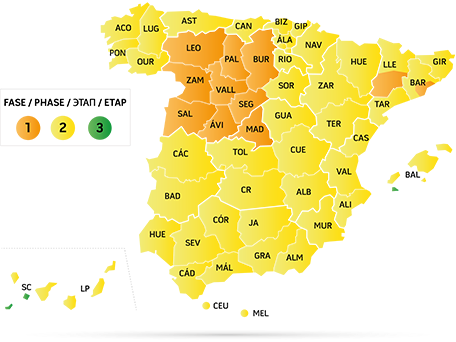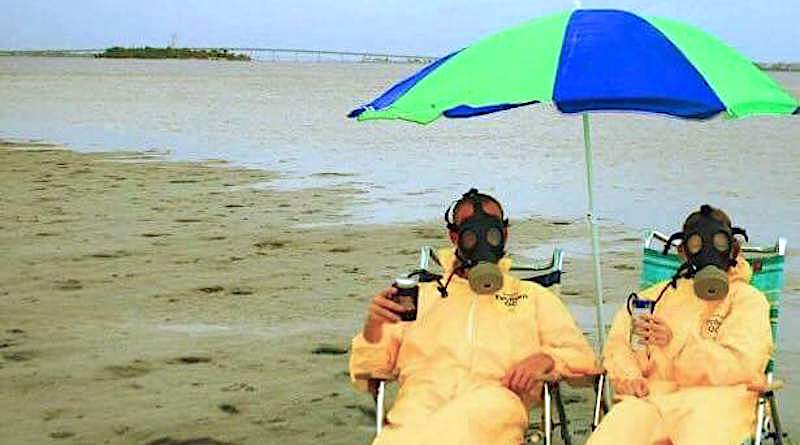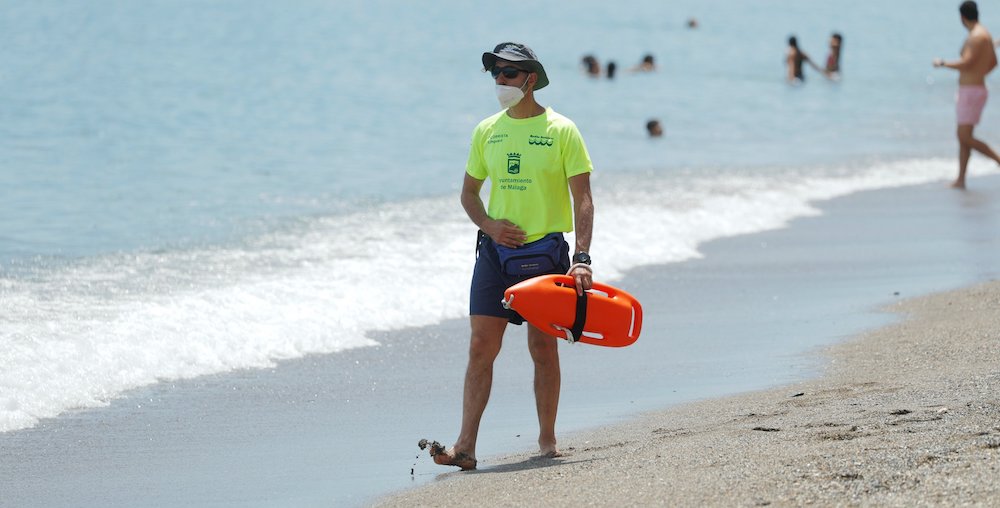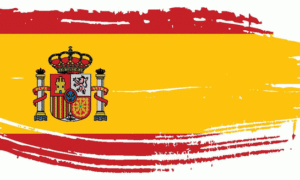It’s official and approved by parliament: the sixth and final extension of lockdown in Spain ends on 21 June, and, with it, we see the end of the estado de alarma. No, no, that doesn’t mean freedom as we knew it until the pandemic shut down Spain at beginning of March!
Not by a long shot.

It only means the government doesn’t have exclusive power over what we can or cannot do. Instead, that power goes to the individual autonomous provinces that will then establish the rules … which will not be the same for the entire country.
To recap:
• On 14 March, Spanish officials declared the estado de alarma (state of emergency) because of the devastating spread of COVID-19 across the country, sparking some of the toughest restrictions of freedom and movement in all of Europe.
• For two months, we were only allowed to leave our homes for short trips to the nearest supermarket, chemist or cashpoint and to walk our dog twice a day.
• Then a gradual release came into force on 8 May, allowing kids accompanied by parents out for a short walk, as well as walks and sports on the beach and, finally, the opening of more shops, bars and restaurants.
• No travel within the country or even the province, and borders with other
European countries remained closed as well as ports and airports.

• On 20 May, wearing face masks, even in the open, became obligatory.
The entire process of returning to what is called the new normal, is known in Spain as desescalada and is divided into four phases:
• As of Monday, 8 June, 52-percent of the population will enter into Phase 3, which means shopping malls and cinemas are open, you can exercise and walk at any hour of the day and dine in the interior of restaurants. You can visit friends and relatives and have reunions of up to 20 people at home or in bars.
• Beaches were closed and Phase 2 didn’t allow swimming or sunbathing, This ends with Phase 3. Travel between provinces will be possible as well, provided the provinces are in the same phase.
Ever-changing rules
The most important change, though, especially after the estado de alarma ends, is that the individual autonomous provinces now make the rules.
This means each region of Spain will have to live under different rules, which can be quite confusing and, as has been the case in the past, changes practically on a weekly basis.
As many of us expats have chosen to live in Spain because of the weather and the beaches, the rules of how we’ll be allowed to use them again will be of great interest. Torrevieja, the beach resort on the Costa Blanca where I live, belongs to the autonomous province of Valencia, the only provice which has chosen to remain in Phase 2 after 8 June. This means no swimming, no sunbathing, only walks, exercise (not in groups).
Taking the kids to the beach, and sports such as fishing, paddle boarding and surfing are allowed.
Those moving to Phase 3 find the beaches reopened, but … there are rules in place which vary greatly, because the provinces have to work out how to control and avoid crowds.
They include:
• allotting times of use to age groups – only allowing people onto the beach in the mornings and afternoons and closing them down during siesta time. To ensure compliance, authorities use sensors on lamp posts to count the number of people accessing the beach as well as special apps. Many local governments have contracted additional staff for crowd control, although it’s uncertain what powers they actually will have. It remains to be seen how all that will work out.
• bars, restaurants and hotels opening inside and on their terraces, always observing strict sanitary rules of disinfection, separation of tables and wearing of masks and often even face shields for waiters.
• face masks will remain mandatory even after the conclusion of Phase 4 and probably until the autumn. The only exceptions are if you suffer from respiratory problems like asthma or hay fever or can keep a two-meter distance from other people.
Travel in Spain
Another subject is travel. Spain will open her borders to foreign tourists from July on. In fact, 15 airports have already been conditioned to comply with safety rules to prevent a new outbreak of the pandemic.
They include:
Seve Ballesteros-Santander, Bilbao, Seville, Menorca, Ibiza, Lanzarote-César Manrique, Fuerteventura, Tenerife South, Alicante-Elche, Valencia, Josep Tarradellas Barcelona-El Prat, Gran Canaria, Adolfo Suárez Madrid-Barajas, Málaga-Costa del Sol and Palma de Mallorca.
One still has to wait to see which citizens of which countries can come to Spain and what, if any, quarantine rules will apply. As we in the province of Valencia remain in Phase 2 and no date has been set to determine our
move the Phase 3, the ironic situation may arise that foreigners are allowed to visit, say, the Coast del Sol before we can.
To answer the initial question of: now what? After the end of the estado de alarma we now depend on rules and restrictions from the individual provincial governments instead of the state.
The “new normal” is still a long way off.
(Editor’s note: You can see more here about the latest pandemic rules and restrictions across Europe including Spain.)

About the author:
Inka Piegsa-Quischotte is an international attorney-turned-travel and lifestyle writer. She has contributed to BBC/Travel, several inflight magazines, TripSavvy (Spain) and TravelAwaits among many other publications. After several years in Turkey, she now lives on Spain’s Costa Blanca.
Read more about Spain in our Dispatches archive here.
Inka Piegsa-Quischotte is an international attorney-turned-travel and lifestyle writer based in Spain. She has contributed to BBC/Travel, several in-flight magazines, TripSavvy (Spain) and TravelAwaits among many other publications.














